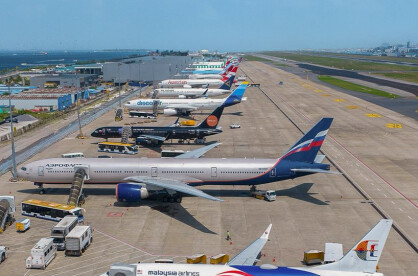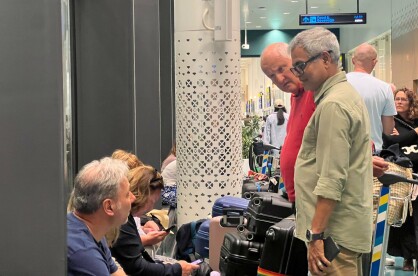The resort rent discussion
When the Minister for Tourism in the Maldives made his suggestion, the lack of cohesion in the upper echelons of the Maldivian administration poses questions for which the public deserves answers.

When the Minister for Tourism in the Maldives made his suggestion, the lack of cohesion in the upper echelons of the Maldivian administration poses questions for which the public deserves answers.

The Maldives thrives on tourism. This is uncontested, as the 1192 low-lying tropical islands are pristine paradises that so many people crave. With over 160 resorts either in operation or nearing completion, the hospitality industry funnels in billions each year that support the nation in terms of employment, infrastructure, and development.
However, there is a certain balance in the industry that allows businesses to grow alongside the nation's revenue. This balance is upheld by the taxes, land rents, and other similar fees and licences that need to be paid from these resort companies to the government. Charge them too much and they’ll be forced to increase service prices, which might deter the customer base. Charge them too little and the nation would be left trailing behind while those who own and benefit from the resorts would prosper beyond measure. Last month, the Minister of Tourism, Dr Mausoom, alongside MATI (Maldives Association of Tourism Industry) consisting of the biggest movers and shakers of the industry, had proposed to do the latter.
Economically, cutting costs is a surefire way of allowing business growth and more distribution of earnings within the workforce. With the successful minimum wage set at USD600 per month for resort employees, there are certainly foreseeable dents and compromises to the generally expected income for a resort company. It was this minimum wage requirement that the argument was based on as the Minister presented it.
Although the recommendation was retracted last week, it was initially proposed to amend the Tourism Act to lower the land rent for resort islands to circumvent the profit dent caused by enforcing the minimum wage. The suggested changes were as follows:
Lands located in Thaa, Laamu, Gaafu Alif and Gaafu Dhaal atolls:
Lands located in atolls from Noonu to Dhaalu:
There is no change in the rates allocated for other zones.
However, MIRA and MMA were quick to jump in to voice their concerns regarding this abrupt change. Land rent from tourism, according to the yearly reports by the Maldives Inland Revenue Authority (MIRA) accounts for over MVR1.6 billion (USD103 million) in revenue for the country’s reserve. This cut, as calculated by MIRA, would cause a loss of over MVR590 million to the state income.
The Maldives Monetary Authority supported this finding by MIRA and warned the government of the risk of macroeconomic crisis. They had ominously added that Sri Lanka should be considered a warning sign as well, as the suggested amendment went quite along the lines of the many financial pitfalls self-imposed by the Rajapaksa government that led to the economic downfall that’s being observed right now.
This also comes in time with the alleged statement by JP Morgan, the biggest investment bank in the world, that listed the Maldives in the list of nations with the risk of reserves drying up by 2023. While the statement has been claimed to be taken out of context, as described by the Finance Minister Ameer, the sentiment does ring true.
This can be seen from the financial decisions made by the Solih Administration thus far, with multiple loans wracking up twice the debt before Covid-19, with promises of swift stabilisation of the economy. The debt keeps rising day by day, with interest rates on repayment, and the increase in infrastructure without improving and making robust the economic output is a worrying sign. Furthermore, given how the sentiment of the government was made clear with Mausoom’s suggested amendments, the government has been quite laidback while financial advice has been advocating more restraint.
Only recently was Moody’s credit rating challenged by Ameer, as reported by MFR, and a more favourable rating was awarded by Fitch shortly afterwards. These polarised outlooks of the current Maldivian financial health need to serve as warning posts, to stop and check the balances and to make the right decisions at each juncture.
MFR firmly believes in financial awareness at all levels of policymaking and implementation. Given how the Maldives is going through a boom in tourism income, statements, plans, and decisions all affect the minds of potential investors at this juncture. The global economy is volatile, a case in point being the conflict in East Europe that has been affecting economies all over the world. This was also cited as a reason for MMA’s warning to the government, that to take such a financial risk would not be plausible just yet.
And with the staggering amount of money owed to MIRA by multiple resort companies and islands from 2020, the economy is fragile and safeguards need to be in place to ensure the story of the neighbouring countries does not happen in the Maldives.



